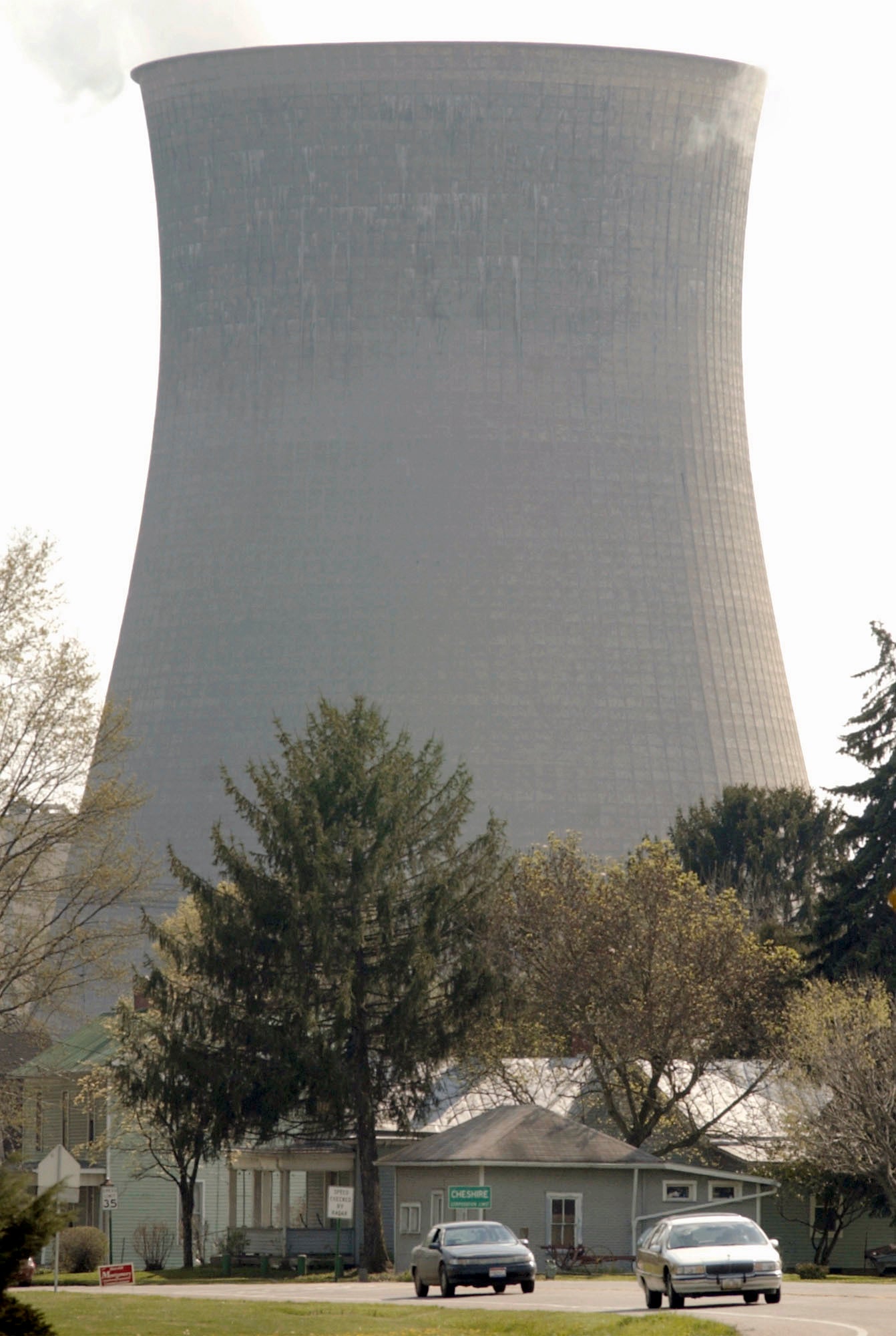EPA orders Ohio power plant to stop dumping toxic coal ash
In a major action to address toxic wastewater from coal-fired power plants, the Environmental Protection Agency on Friday ordered an Ohio utility to stop dumping dangerous coal ash into unlined storage ponds and speed cleanup of the site

In a major action to address toxic wastewater from coal-fired power plants, the Environmental Protection Agency on Friday ordered an Ohio utility to stop dumping dangerous coal ash into unlined storage ponds and speed cleanup of the site.
The order to the Gen. James Gavin Power Plant in southern Ohio marks the first time the EPA has formally denied a utility’s request to continue disposing toxic coal ash after a deadline to stop such disposal has passed. The Gavin plant, located along the Ohio River in Cheshire, Ohio, is one of the largest coal-fired electricity plants in the U.S.
At least five other plants, most in the Midwest, face similar action by the EPA under a crackdown proposed in January.
"For too long, communities already disproportionately impacted by high levels of pollution have been burdened by improper coal ash disposal,” EPA Administrator Michael Regan said Friday. “Today’s action reaffirms that surface impoundments or landfills cannot be closed with coal ash in contact with groundwater.''
The action is intended to ensure that local water resources are safe while protecting the public health and ensuring a reliable electricity supply, Regan said.
Coal ash, the substance that remains when coal is burned to generate electricity, contains a toxic mix of mercury, cadmium, arsenic and other heavy metals. It can pollute waterways, poison wildlife and cause respiratory illness among those living near massive ponds where the waste is stored.
The EPA order directs the power plant to stop placing coal ash and other waste streams into an on-site storage pond no later than 135 days after publication in the Federal Register, expected next week. As a practical matter, the plant may have have to pause or even cease operations next year in order to comply with the order.
A spokesperson for the plant's owner, Lightstone Generation LLC, could not be reached for comment. The company is a joint venture between private-equity firms ArcLight Capital Partners and Blackstone Group.
EPA said Friday that its decision recognizes the importance of maintaining grid reliability. The order establishes a process for Gavin to seek additional time, if needed, to address demonstrated grid reliability issues.
EPA said it is working with a regional grid operator to prevent unscheduled outages and protect reliability of the grid. Under rules established by the grid operator, PJM Interconnection, Gavin must request a planned outage at least 30 days in advance, EPA said.
The order finalized Friday follows through on a proposal issued in January that implements a 2015 rule aimed at reducing groundwater pollution from coal-fired power plants. The Trump administration weakened the Obama-era rule in 2020, allowing utilities to use cheaper technologies and take longer to comply with guidelines that were less stringent than the initial rule.
The action on coal ash was among dozens of public health and environmental mandates that were weakened, rolled back or eliminated under former President Donald Trump.
U.S. coal plants produce about 100 million tons (90 million metric tons) annually of ash and other waste.
The EPA has proposed denial of requests for extensions of coal ash permits by several other power plants, including the Clifty Creek power plant in Madison, Indiana and the Ottumwa Generating Station in Ottumwa, Iowa.
The H.L. Spurlock plant in Maysville, Kentucky, is required to fix groundwater monitoring as a condition for continued operation of its coal ash pond, the EPA said.
Lisa Evans, a senior attorney for the environmental group Earthjustice, called the Gavin plant “a super-polluter″ and said EPA's action was overdue.
“In this case, the violations are very obvious and very severe,'' she said, adding that the plant's previous and current operators “have continued their reckless and illegal disposal of toxic coal ash and contaminated groundwater. Now they will be forced to clean it up.''
A report issued this month by Earthjustice and the Environmental Integrity Project said 91% of U.S. coal-fired plants have ash landfills or waste ponds that are leaking arsenic, lead, mercury and other metals into groundwater at dangerous levels, often threatening streams, rivers and drinking water aquifers.
Some power companies are illegally manipulating data and monitoring systems to avoid cleanup requirements and have proposed inadequate cleanup strategies that will not restore groundwater quality, the report said.
Bookmark popover
Removed from bookmarks